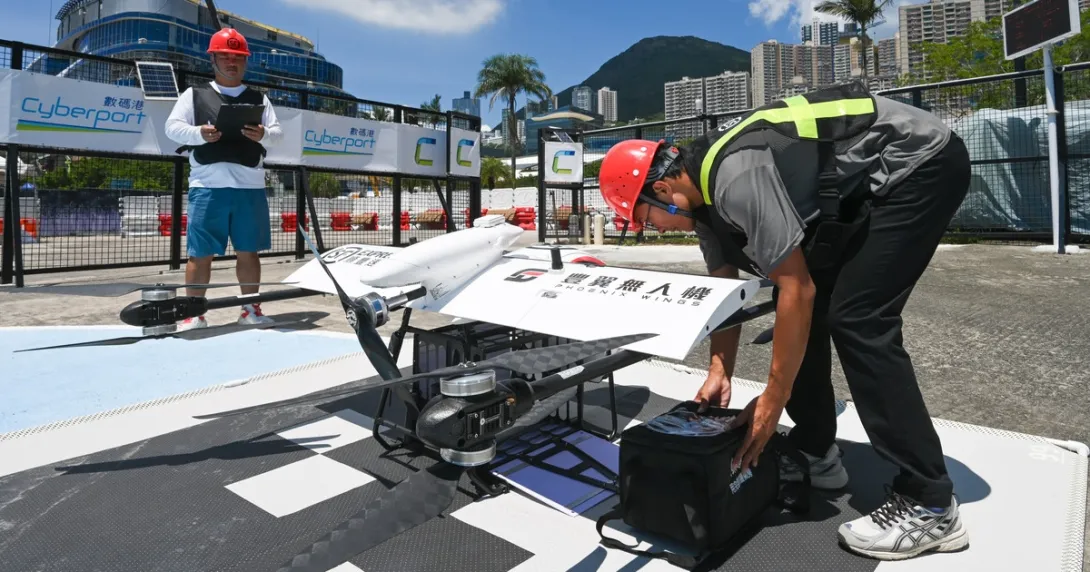
Photo courtesy of news.gov.hk/Information Services Department, Hong Kong
Hong Kong Hospital Authority has begun testing drone delivery of medicines as part of a broader trial by the city government.
It collaborated with logistics company SF Express, which recently ran the pilot drone-based medicine delivery from Cyberport in Hong Kong's Southern District to St John Hospital in Cheung Chau, an outlying island southwest of the city.
WHY IT MATTERS
The pilot project aims to evaluate the feasibility of drone delivery of medical supplies in the event of an emergency. Delivery from Hong Kong to Cheung Chau usually takes 45-65 minutes via ferry. The recent pilot demonstrated that a 12-kilometre drone flight could cut the time to just 20 minutes, according to SF Express Hong Kong and Macau CTO Kenny Lau. The drone operation and communication proved to be "very stable," he added.
Dr Maxime Mark, associate consultant at St John Hospital Accident & Emergency Department, shared that they plan to expand the service to deliver urgent medical supplies like antivenoms from Hong Kong to Cheung Chau.
THE LARGER CONTEXT
The medicine drone delivery is part of the broader Low-Altitude Economy Regulatory Sandbox pilot projects involving different sectors. The trial programme seeks to promote Hong Kong's low-altitude economy (LAE), which refers to economic activities utilising drones and airspace to provide services in logistics, agriculture, tourism, and emergency response. LAE has been identified as one of Hong Kong's strategic emerging industries.
38 projects – including the medicine drone delivery project between HA and SF Express – were selected to partake in the programme.
In June, Meituan's Keeta Drone launched the city's first regular drone delivery route. The food drone delivery takes off from Hong Kong Science Park and lands at the Ma On Shan Promenade.
Besides Hong Kong, Malaysia's communications regulator also recently piloted medicine drone delivery in Sabah. Meanwhile, a project in Sydney is testing hydrogen-fuelled drones, which are known for their sustainability and ability to fly greater distances, in delivering medical cargo to rural and isolated communities.

